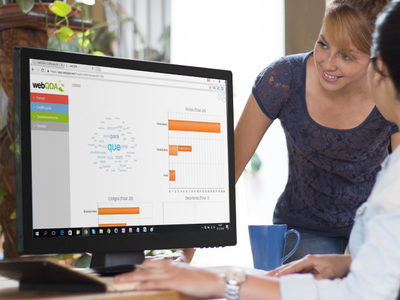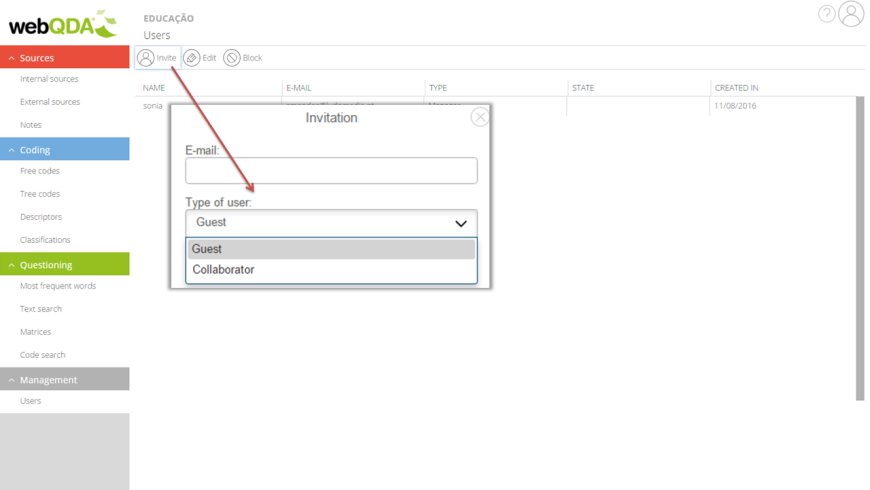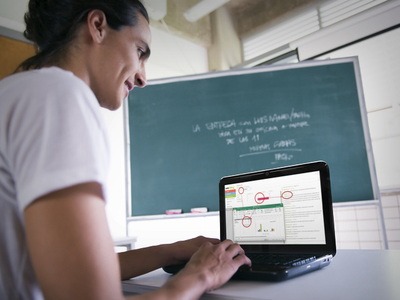
By António Pedro Costa, University of Aveiro – Portugal
Collaborative work in qualitative research is a reality that the researcher cannot ignore. For those who attend masters and doctorates, the use of a web-based tool can improve the process of qualitative data analysis. In the initial phase, the creation of a database with all sources: articles, theses, data corpus; in the intermediate phase, the validation of its category model defined in an inductive way or from a theoretical model (deductive), definition of categories and creation of attributes. In the final phase, questioning and inference to the data, among others (Costa, 2016; Costa, Souza, Reis, & Freitas, 2016a).
Providing a tool for qualitative analysis on the web and not thinking about features that take advantage of it would be against the current trend for an increasingly “shared” investigative work. The research work is not solitary and its quality can be favored by this sharing. Since the second half of the last century, technological and media support have contributed as much to the organization and analysis of data as to the collaborative production of knowledge in the various research contexts. The webQDA software extends the possibilities of communication between researchers in the definition of the dimensions of analysis (categorization, coding and recoding, etc.), fundamental for the construction of synthesis and of analysis (Costa, Linhares, & Souza, 2014).
WebQDA is a software composed essentially of three pillars: i) Sources; Ii) Codification; and iii) Questioning. Transversally, it is constituted by a Management module in which it is possible to share and work collaboratively with other researchers on a same project. In order to do this, it is possible to invite other researchers (the supervisors, for example) with different profiles / privileges (Costa, Souza, & Souza, 2016).
To invite other users (for example, the supervisors, to share the project) one should (see figure):
- Access the project;
- Go to the “Users” tab (in the Management menu);
- Click the “Invite” function.
There are two User Profiles:
- Collaborating Researcher: the collaborating researcher has permissions to edit and insert data in a given project;
- Guest Researcher: The guest researcher only has permissions to view the data made available in a particular project.
The “Block” command prevents a certain user from continuing to access the project.

The different functionalities were implemented with the objective of facilitating collaborative work among researchers, taking advantage of the distributed environment provided by the Internet, thus facilitating sharing and communication among several researchers (Serçe et al., 2010; Costa, 2012).It is not the purpose of this text to describe all the potentialities of webQDA, but to focus on the possibilities this tool offers to promote collaborative (and cooperative) research.
References
Costa, A. P. (2012). Metodologia Híbrida de Desenvolvimento Centrado no Utilizador. Universidade de Aveiro.
Costa, A. P. (2016). Cloud Computing em Investigação Qualitativa: Investigação Colaborativa através do software webQDA. Fronteiras: Journal of Social, Technological and Environment al Science, 5(2), 153. https://doi.org/10.21664/2238-8869.2016v5i2.p153-161
Costa, A. P., Linhares, R., & Souza, F. N. de. (2014). Possibilidades de Análise Qualitativa no webQDA e colaboração entre pesquisadores em educação em comunicação. In R. Linhares, S. de L. Ferreira, & F. T. Borges (Eds.), Infoinclusão e as possibilidades de ensinar e aprender (pp. 205–215). Universidade Tiradentes, Aracaju – Brasil: Editora da Universidade Federal da Bahia.
Costa, A. P., Souza, D. N. de, & Souza, F. N. de. (2016). Trabalho Colaborativo na Investigação Qualitativa através das Tecnologias. In D. N. de Souza, A. P. Costa, & F. N. de Souza (Eds.), Investigação Qualitativa: Inovação, Dilemas e Desafios (1a, pp. 105–127). Oliveira de Azeméis – Aveiro: Ludomedia.
Costa, A. P., Souza, F. N. de, Reis, L. P., & Freitas, F. M. (2016). “Estou nas Nuvens”: Trabalho Colaborativo em Investigação Qualitativa através do software webQDA. In B. M. Faria, L. P. Reis, & A. P. Costa (Eds.), Congresso Ibero-Americano em Investigação Qualitativa – Engenharia e Tecnologia (volume 4) (p. in press). Oliveira de Azeméis – Aveiro: Ludomedia.
Serçe, F. C., Swigger, K., Alpaslan, F. N., Brazile, R., Dafoulas, G., & Lopez, V. (2010). Online collaboration: Collaborative behavior patterns and factors affecting globally distributed team performance. Computers in Human Behavior, 1–14.





Leave a comment